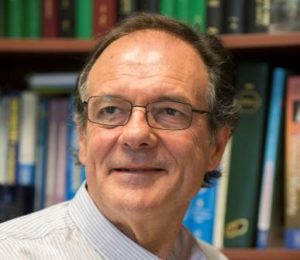 Establishing an integrated research and teaching institute for clean technology is the ultimate goal of one of Flinders University’s newest recruits, Professor Colin Raston (pictured).
Establishing an integrated research and teaching institute for clean technology is the ultimate goal of one of Flinders University’s newest recruits, Professor Colin Raston (pictured).
In an interview with Flinders Indaily, the SA Premier’s Professorial Research Fellow in Clean Technology says he hopes to play a leading role in the development of a University-based centre focused on creating cleaner technologies for a more sustainable future.
The centre, he says, will have a strong focus on “green chemistry”.
“Green chemistry ensures products are environmentally safe, that the processes for making them are safe and that there is no waste,” Professor Raston, based in the School of Chemical and Physical Sciences, said.
“It’s about avoiding the use of toxic reagents to make these products and making sure they can be recycled, or if they do get into the environment that they can simply degrade into something benign.
“With this is mind, it’s my vision to ultimately set up a centre at Flinders which is dedicated to minimising our environmental footprint by developing new products and processes that meet the above conditions.
“Basically it’s saying enough’s enough, rather than continually modifying existing technologies to make them more eco-friendly let’s go back to the drawing board and start technologies over again.”
Professor Raston arrived at Flinders in March from The University of Western Australia, where he was the founding director of the Centre for Strategic Nano-fabrication (Incorporating Toxicology).
A pioneer in clean technologies, Professor Raston led the debate on green chemistry during his presidency of the Royal Australian Chemical Institute in the late 90s, and in 2002 he was awarded the institute’s prestigious Green Chemistry Challenge for his work in the field.
With his arrival coinciding with the launch of Flinders new Bachelor of Science (Clean Technology) degree, Professor Raston said he hoped to mentor and inspire a new generation of scientists.
“The new degree will allow students to study hard-core science while actually making a contribution to the planet, and I hope I can be part of that journey.
“The other objective of my appointment is to integrate clean technology within the University – while there is a lot going on in this area within and outside of the School I’ll be creating partnerships with all the different groups in the School and the wider University.”
Professor Raston said he was looking forward to his future at Flinders in an “attractive, exciting and challenging position”.
“From what I’ve seen so far the collegial atmosphere at Flinders is just striking and the overall support I’ve received across the University has been overwhelming.”

